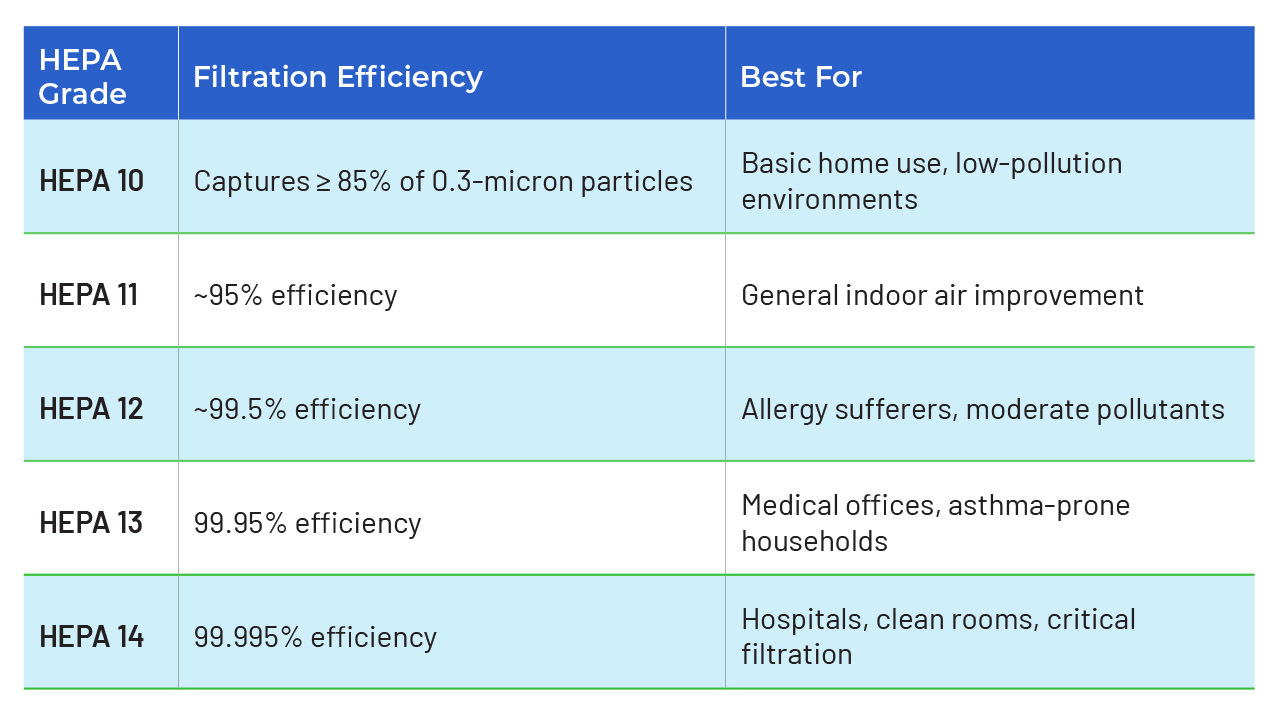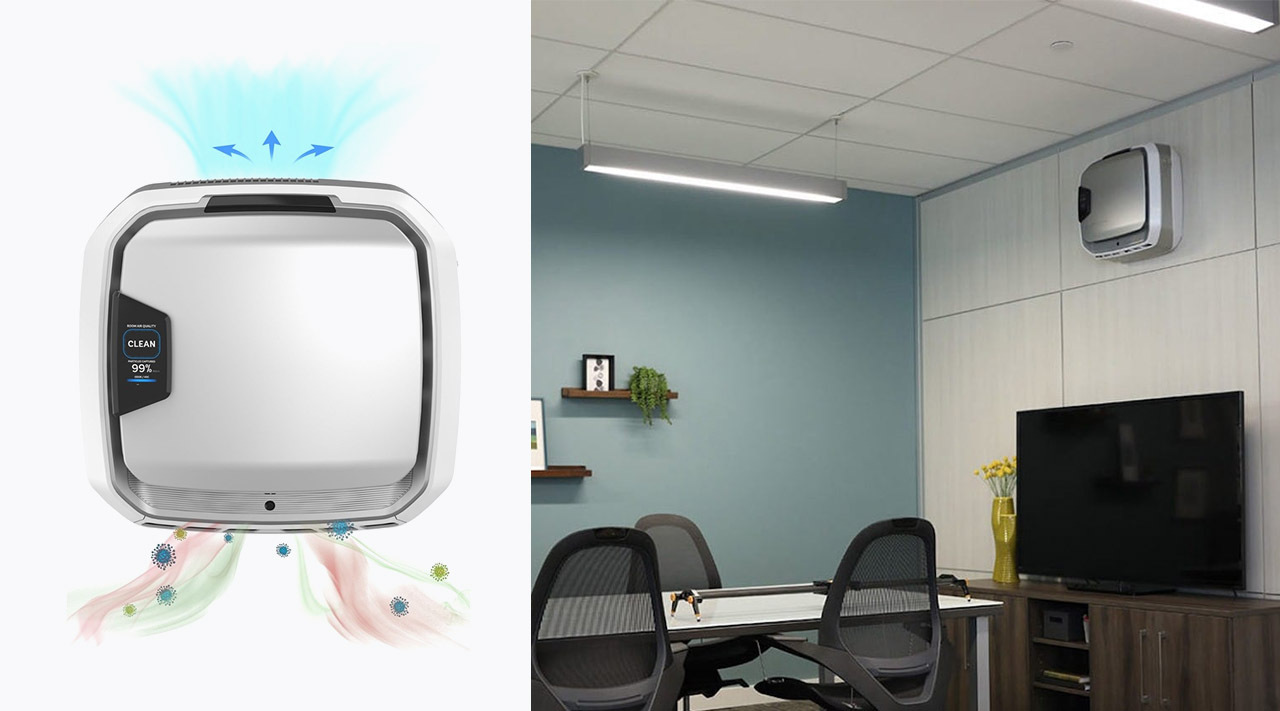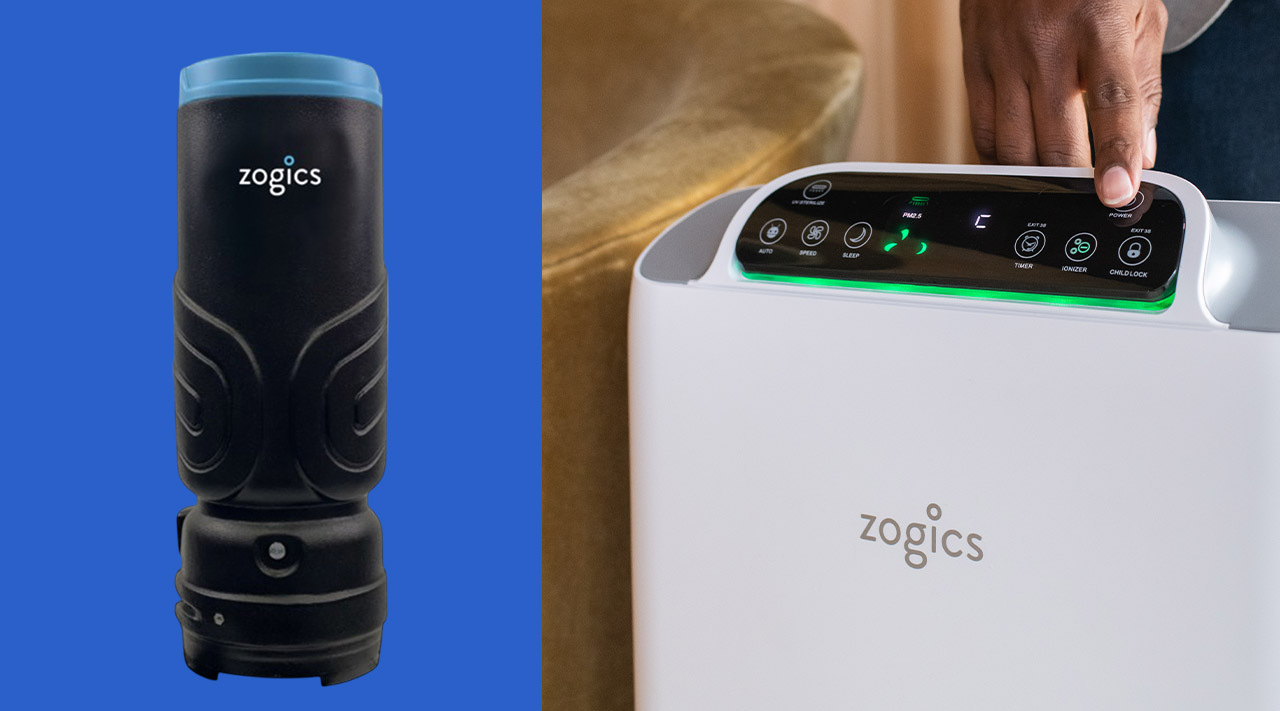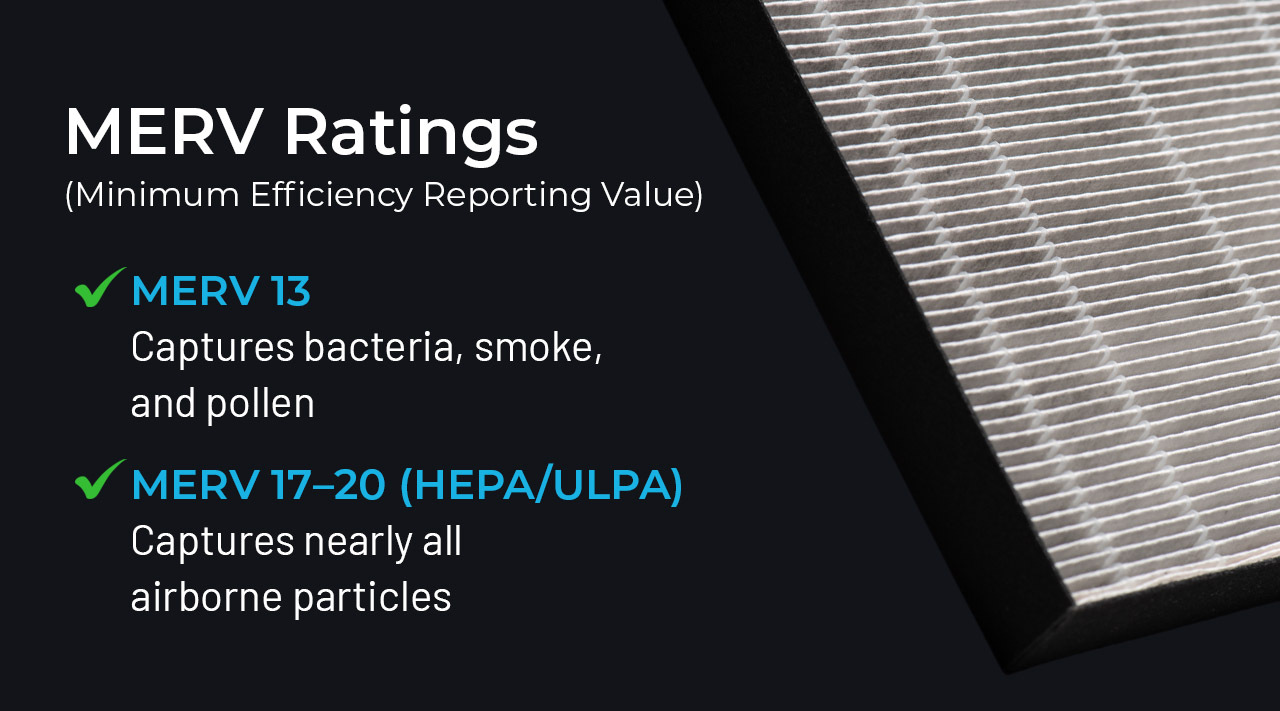Understanding HEPA Filters: What is a HEPA Filter and Why It Matters
In an age where indoor air quality is more important than ever, HEPA filters have become essential in both homes and healthcare settings. But what exactly is a HEPA filter? How do different grades compare? And what’s the difference between a vacuum HEPA filter and one in an air purifier?
This guide covers everything you need to know—whether choosing a vacuum, air purifier, or simply wanting cleaner air in your space.
What is a HEPA Filter?
HEPA stands for High Efficiency Particulate Air. A true HEPA filter captures at least 99.97% of airborne particles measuring 0.3 microns—widely known as the most penetrating particle size (MPPS) because these particles are the hardest to trap.
HEPA filters are pleated mechanical filters that use several mechanisms to capture airborne contaminants:
• Diffusion – for the smallest particles
• Interception – for medium-sized particles
• Impaction – for larger particles
These filters are widely used to improve air quality by removing dust, pollen, pet dander, mold spores, and even bacteria.
How HEPA Filters Work
HEPA filters capture particles through three primary mechanisms: diffusion, interception, and impaction. Each method targets different particle sizes, ensuring comprehensive air purification.
Particles measuring particles that are 0.3 microns are the hardest for HEPA filters to trap, known as the most penetrating particle size. Microscopic particles larger or smaller than 0.3 microns are captured more efficiently, making HEPA filters highly effective in maintaining clean air and remove particles of penetrating size, including particulate matter.
The Role of Pre-Filters
Pre-filters enhance HEPA filters by capturing larger dust and dirt particles before they reach the main filter, prolonging effectiveness and maintaining longevity.
Trapping larger particles helps pre-filters preserve the efficiency and extend the lifespan of HEPA filters, allowing them to focus on capturing finer, more harmful particles and trap particles for optimal air purification.
True HEPA vs. HEPA-like Filters
Not all "HEPA" filters are created equal.
• True HEPA filters meet the U.S. Department of Energy standard of capturing 99.97% of particles ≥0.3 microns. These filters are tested and certified.
• HEPA-like or HEPA-type filters may look similar but don’t meet certification standards and often capture only 85–90% of particles.
Pro Tip: Always check the packaging for certification language like "meets DOE standard" or "99.97% at 0.3 microns."
Grades of HEPA Filters: HEPA 10–14
HEPA filters come in various grades based on efficiency. Here's how they compare:

Both HEPA 13 and 14 are often considered medical-grade. For most homes, HEPA 12 or 13 offers a strong balance between clean air and airflow.
HEPA 11 vs. HEPA 13
HEPA 13 is significantly more efficient (99.95%) than HEPA 11 (95%), making it better for allergy-prone environments.
HEPA 12 vs. HEPA 13
HEPA 12 filters are excellent for home use, but if you have severe allergies or need near-medical-grade purification, HEPA 13 offers superior protection.

Applications of HEPA Filters
HEPA filters are widely used for contamination control in medical, industrial, and home settings. In healthcare environments, they are often paired with technologies like UV-C light to maintain sterility and reduce infection risk.
In homes, HEPA room air cleaners are beneficial, especially for those without central HVAC systems and with indoor pets. Certain whole house air filtration systems bring in and filter fresh outdoor air to maintain clean indoor air quality. Air purifiers can also enhance the overall air quality in these environments.
Medical-Grade HEPA Filters
Medical-grade HEPA filters, like H13 and H14, are crucial in medical facilities for controlling airborne contaminants. They effectively remove dangerous pathogens, reducing hospital-acquired infections and protecting patients and staff. Antimicrobial HEPA filters eliminate harmful microbes upon contact. A medical-grade HEPA filter is essential for optimal air quality.
In hospitals, HEPA filters maintain clean air and promote health by providing clean air and reducing the spread of airborne pathogens and viruses, enhancing safety for patients and healthcare workers.
HEPA Filters in Home Environments
At home, HEPA filters improve indoor air quality in the home environment, especially for those with pets or allergies, including pet dander. HEPA vacuum cleaners trap airborne allergens and particles during cleaning, benefiting individuals with asthma symptoms and allergies by effectively reducing allergens.
Choosing the right HEPA filter requires considering the size of the space for effective allergen removal. Filters with a MERV rating of 13 or higher effectively reduce allergens in residential settings.

HEPA Filters in Vacuums vs. Air Purifiers
In Vacuums
HEPA filters in vacuums are designed to trap particles that would otherwise be released back into the air during cleaning. They’re crucial for allergy sufferers and homes with pets.
• Captures pet dander, fine dust, and pollen
• Prevents allergens from recirculating
• Ideal for asthma and allergy management
In Air Purifiers
HEPA air purifiers continuously cycle air through the filter to remove pollutants from the environment.
• Ideal for removing airborne particles like smoke, mold spores, and bacteria
• Enhances indoor air quality, especially in poorly ventilated homes
• Often paired with activated carbon filters for odor control
Choosing Tip: For the best protection, pair a HEPA air purifier with a vacuum that also uses a HEPA filter.
Benefits of Using HEPA Filters
HEPA filters offer numerous health benefits by reducing exposure to allergens and harmful airborne pollutants. They are particularly effective at trapping larger particles, enhancing air quality.
Choosing the right HEPA filter can significantly relieve allergy and asthma symptoms for allergy sufferers by targeting specific allergens. HEPA filters also protect against pathogens like bacteria and mold spores, contributing to a healthier living environment.
Choosing the Right HEPA Filter
Selecting the right HEPA filter involves considering the present pollutants and the facility population’s sensitivity. Using approved HEPA filters protects equipment warranties and prevents damage.
The Clean Air Delivery Rate (CADR) helps consumers match air cleaners to the appropriate room size for effective purification. Certain spaces require a minimum MERV rating of 14 for adequate filtration.

MERV Ratings: How Do They Relate?
MERV (Minimum Efficiency Reporting Value) rates filters on their ability to trap particles. HEPA filters typically fall at MERV 17–20, while most residential HVAC filters are rated between MERV 8–13.
• MERV 13: Captures bacteria, smoke, and pollen
• MERV 17–20 (HEPA/ULPA): Captures nearly all airborne particles
Note: Higher MERV = better filtration, but may reduce airflow in some HVAC systems.
Maintenance and Lifespan of HEPA Filters
HEPA filters require regular cleaning and replacement according to manufacturer guidelines to maintain effectiveness, provide optimal air filtration, and prolong usage life.
HEPA filters are more cost-effective and easier to maintain compared to ULPA filters. Regular maintenance ensures optimal performance and extends lifespan.
Breathe Better, Live Better
HEPA filters are a vital tool in improving air quality and reducing health risks associated with airborne pollutants. By understanding their types, applications, and how to clean air purifiers, you can make informed decisions to ensure cleaner, healthier air in your environment. Take action today to breathe easier and live healthier with HEPA filtration.
Frequently Asked Questions
What does HEPA stand for?
HEPA stands for High Efficiency Particulate Air, indicating filters designed to capture at least 99.97% of particles that measure 0.3 microns.
How often should HEPA filters be replaced?
HEPA filters should be replaced every 6 to 12 months, following the manufacturer's guidelines, to ensure optimal performance based on usage and environmental conditions.
What is the difference between true HEPA and HEPA-like filters?
True HEPA filters are certified to remove 99.97% of 0.3-micron particles, ensuring high efficiency, whereas HEPA-like filters do not adhere to these strict standards and may provide lesser filtration performance.
Can HEPA filters help with allergies?
HEPA filters can significantly reduce allergens in the air, making them beneficial for individuals with allergies. Utilizing these filters can improve indoor air quality and alleviate allergy symptoms.
What is a MERV rating?
A MERV rating, or Minimum Efficiency Reporting Value, quantifies the effectiveness of air filters, with higher ratings signifying superior filtration efficiency. It is essential for selecting filters that improve air quality.
What's the difference between HEPA 11 and HEPA 13?
HEPA 13 filters are more efficient (99.95%) and suitable for medical use; HEPA 11 captures around 95%.
What’s the best HEPA filter for a vacuum vs. air purifier?
Use certified HEPA filters in both, but air purifiers need higher CADR ratings for whole-room coverage.
How do HEPA filters compare to MERV ratings?
HEPA filters typically rate between MERV 17–20 and offer superior filtration compared to standard HVAC filters.
Recent Posts
-
Understanding HEPA Filters: What is a HEPA Filter and Why It Matters
In an age where indoor air quality is more important than ever, HEPA filters have become essential i …May 16, 2025 -
What Does Septic Safe Mean? Your Complete Guide
Choosing septic-safe products is one of the easiest and smartest ways to protect your home, your sep …May 09, 2025 -
What Cleaning Supplies Do I Need for a Cleaning Business: Essential Guide
Starting your own cleaning business is an exciting venture; having the right supplies is crucial to …May 02, 2025




